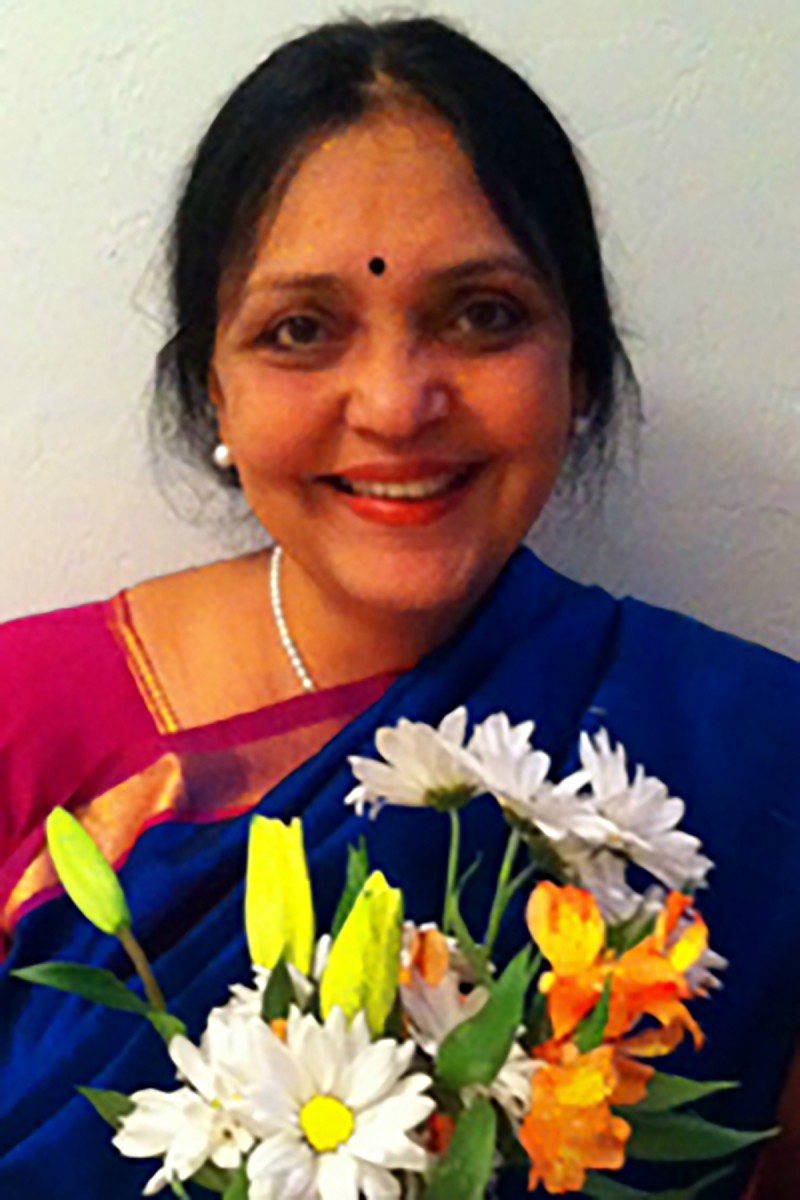As the dominant religion in India and Nepal, Hinduism is a popular practice that exists around the world, complete with sacred and serious traditions. Yet the religion also recognizes the importance of play.
“Yes, there’s suffering, yes, there’s compassion, but one should not think of religion simply as a serious part of life in which you’re always answerable for judgment,” said Vasudha Narayanan, a distinguished professor in the department of religion at the University of Florida. “Play showcases the celebration part of life.”
At 2 p.m. on Wednesday, July 11, in the Hall of Philosophy, Narayanan will address the importance of play within Hinduism during her lecture, “Creation, Re-creation and the Joy of Play,” as part of Week Three’s interfaith theme, “The Spirituality of Play.” Narayanan’s research encompasses Hindu traditions in India, Cambodia and America, and she also studies gender issues.
During her time at Chautauqua, Narayanan will discuss different facets of play, both cultural and religious.
“I’ll be talking about traditional games that originated in India which were used as pedagogical tools for ethics and morality,” she said. “We’re thinking about a global movement of games and cultures without us even knowing about it. That’s the background idea.”
As the author and editor of seven books and the associate editor of Brill’s Encyclopedia of Hinduism, Narayanan has spent countless hours researching and writing about her faith. Narayanan described the Hindu festival, Holi, as a “springtime festival to show the birthing of leaves and color after winter.” She said the festival encompasses the importance of celebration and showcases the idea of play within Hinduism.
“When I think of play, I think of a springtime festival called Holi in which people in many parts of India flash each other with colors,” she said. “This is the joy of play in which you don’t see rank or distinction; men and women will throw color on each other in the exuberance of play.”
In addition to addressing the games and exuberance emphasized in Hinduism, Narayanan will also discuss how play is a pathway to God and the divine.
“If you have surrendered yourself to God, according to Hindu texts, if one has surrendered to the divine power, you’re waiting in life and serving others in life just like one plays a game,” she said. “You’re doing it as an end in itself, to attain salvation.”
Though the afterlife is an important part of Hinduism, Narayanan said there is also a large focus on enjoyment during life.
“While many Hindu holy texts and practices are intended to provide the devotee with spiritual paths to liberation from the repeated cycle of life and death, many other aspects of Hindu life and ritual do not lead directly to such transformation, but are perceived to enhance one’s quality of life on Earth,” she wrote in her book Hinduism (Understanding Religions).
Therefore, within the Hindu traditions, acts of play and relaxation are emphasized.
“Such activities as tree-planting, singing, dancing, healing, archery … might all be considered part of the religious domain,” Narayanan wrote in her book.
Narayanan’s lecture marks her fifth visit to Chautauqua. The professor and Hindu scholar will also be speaking Friday as part of





